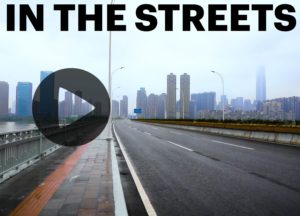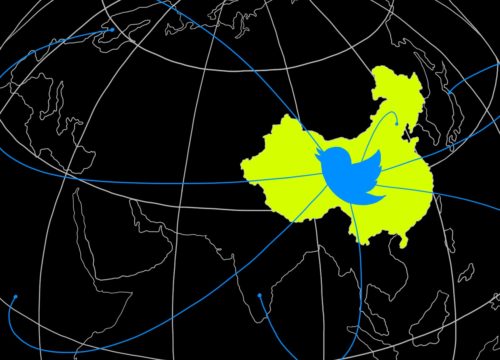Yu Bao on data protection, blockchain, and the role of Shenzhen in China
Yu Bao, a member of the UNESCAP Task Force on Digital Economy, has more than 15 years of experience in innovation incubation and investment in China’s technology sector. He founded the True Digital Foundation in Zug, Switzerland, which developed blockchain based on a “self-sovereign and self-regulated idea to improve the conventional centralized regulation system and build a better future digital economy.”
We spoke with him in New York City in April to learn about his insights into the current development of blockchain technology in China, data protection in the country, and Shenzhen’s advantages compared with those of Silicon Valley in the tech sector.
Here’s the full transcript:
Q: Thank you so much for your interview. My first question is, you just mentioned you are based in Shenzhen, doing more blockchain technology development in China. Can you give me an update on that?
A: Actually, blockchain is a sector that China is also a leading role worldwide, starting from 2014.
Nowadays, the regulations of a framework is centralized, which means that there will be an authority like in New York, like the SEC, which will regulate the stock market. So on the top level, everything should be: First, the SEC approved, and then you can do [ the rest ], like filing for IPO or everything else.
But this will be a big problem in the future in the digitized economy because practically, for the technical level in the digital world, people already can build a digital company or digital money even, a crypto asset, which is no need for a third party to approve — that if they can do peer-to-peer or peer-to-many business, they can do it already.
And so this already creates a lot of conflicts between this new ecosystem and the existing regulation system.So our idea is, we should agree that everyone has the right to make their own choice based on what they believe in. And this already happened in the crypto market through a digital economy. Second, how we ensure that people do what they say. This is still missing in the blockchain, in the cryptos and in the future digital market.
Q: And it’s interesting you mention that because in China, there is this Social Credit system that you can use to analyze people’ s trustworthiness. You just mentioned digitized economy, can you give me an example? China has already implemented Ali pay and some other online payment system.
A: Currently in China, the system is also still in the quite early stage and is led by the central bank, People’s Bank of China. The People’s Bank of China will absorb the data from different institutions, like the banks, the mortgage company or even maybe transportation to regulate your car, like driving. But still, the data is quite limited and I don’t think there is enough data to credit some people.
But this business can go deeper like in the private sector. For example, for Alibaba they have Zhima credit, which will collect data from your internet behavior such as when you buy things from the internet, or you pay for your credit card, etc. And they will give a score, but this is third-party, this is private sector provide. But somehow this score is still accepted in some areas, like if you want to apply for a visa to Europe. This can be a help, if you have a high score.
The European embassy, some of them they accept. But, there’s still this problem that this is a centralized system, which means that the rule is made by some single institution or single company. For example, if a billionaire never buys something on the Internet, his score will be quite low because no data is available to score him. So obviously, there’s something missing.
But in the future, in a digitized economy or a pure digital economy, people themselves will decide what kind of data will be exposed to other party. And he himself, will own all the data generated from all of his behavior. This already is legitimated by European Commission. The European Union has the new law called The General Data Protection Regulation 2016/679.
This law was enacted in 2016 and took into effect in 2018. It regulated that you can recall any of your data from any platform you are using. For example, you can recall all of your data from LinkedIn. LinkedIn should be responsible for packaging all your data and send it back to you without charging.
Q: But based on my understanding, once the big companies, for example, Facebook or LinkedIn, have your data, the information is already out. The data is already exposed to the public. Even though you can retrieve that data, a third party company can still get access to that information.
A: First, all the giant internet companies, they have been sued in Europe because of the new law. On Day 1 when this law went into effect, almost all the giant internet companies were sued because of what they did in the past.
And second, data is a moving concept. Even maybe you unleashed your data in the past 10 years, the value of the data is bound to the time. The data in the past one or two years might not be that important. What’s more important is how one can control his or her data stream. So the European law will give back control of the data to the user.
Q: Now let’s go back to China. China has a big database because the population is so big. So how do you think data will be further protected in China?
A: I think that this is an interesting question. First, the government invests a lot of money to build a national network of cameras and the technologies are quite advanced. For example, in Shenzhen, one of my friends, he’s a founder of an AI company that helps to recognize a picture in the camera very fast. So the first success story was he helped the policeman rescue a girl who was kidnapped by some criminals because you can use thousands of data to track people. And the rescue only took like less than 20 hours after the girl was kidnapped. But on the other hand, of course it is quite dangerous that this kind of ability is used for improper purpose to violate people’s privacy.
So this is true. This is what the challenge happened in China. But basically until now, I think the central government and many citizens will accept that this is quite a cost efficient way to provide security for the citizens.
Some of the people working at the Chinese central government I know, they are also very carefully to study what the European Union does for the data privacy and they anticipate that this will be a global trend. So more and more country will apply this principle.
Q: Let’s talk about blockchain and Shenzhen particularly. Based on my understanding, blockchain technology has already been implemented in China, especially in the food industry. Have you ever seen that trend going on in China? And how, in your field, blockchain transforms the Chinese society?
A: Blockchain in China has already been applied in daily life. For example, Tencent is one of the biggest internet companies in the world. It provides Shenzhen City with blockchain invoices.
Because in China, some company will make fake invoice. Invoicing is important in China when you proceed with your cash flow. Tencent provides a solution for digital invoice based on blockchain, which would be very hard to fake and is very easy to trace and no need to print out. And now if you go ride the subway in Shenzhen, you can request a digital invoice based on blockchain technology.
Q: Shenzhen has always been the Silicon Valley of China. Huawei is also headquartered there. What are your thoughts on the newest developments in terms of technology that Shenzhen has been heavily involved in?
A: Shenzhen doesn’t have that many original innovations as Silicon Valley does. But Shenzhen is a gateway between the global market and China’s domestic market. This is a power of Shenzhen’s in which it can take advantage of these two markets. This is how Shenzhen grows.
Hong Kong used to have this role, but it did not develop itself to be a technology or industrial sector. It’s a pure financial center. But Shenzhen has everything. In the past five years, Shenzhen built 20 universities from zero, inviting prestigious domestic and foreign institutes to form joint schools. The government provides all the funding or real estate to build those universities. Some examples are Berkeley and the Istituto Marangoni. Around 20 world-class joint universities are established in Shenzhen now. These schools will provide the city with enough highly educated talents in the future, the brain power that will develop the city dramatically.





